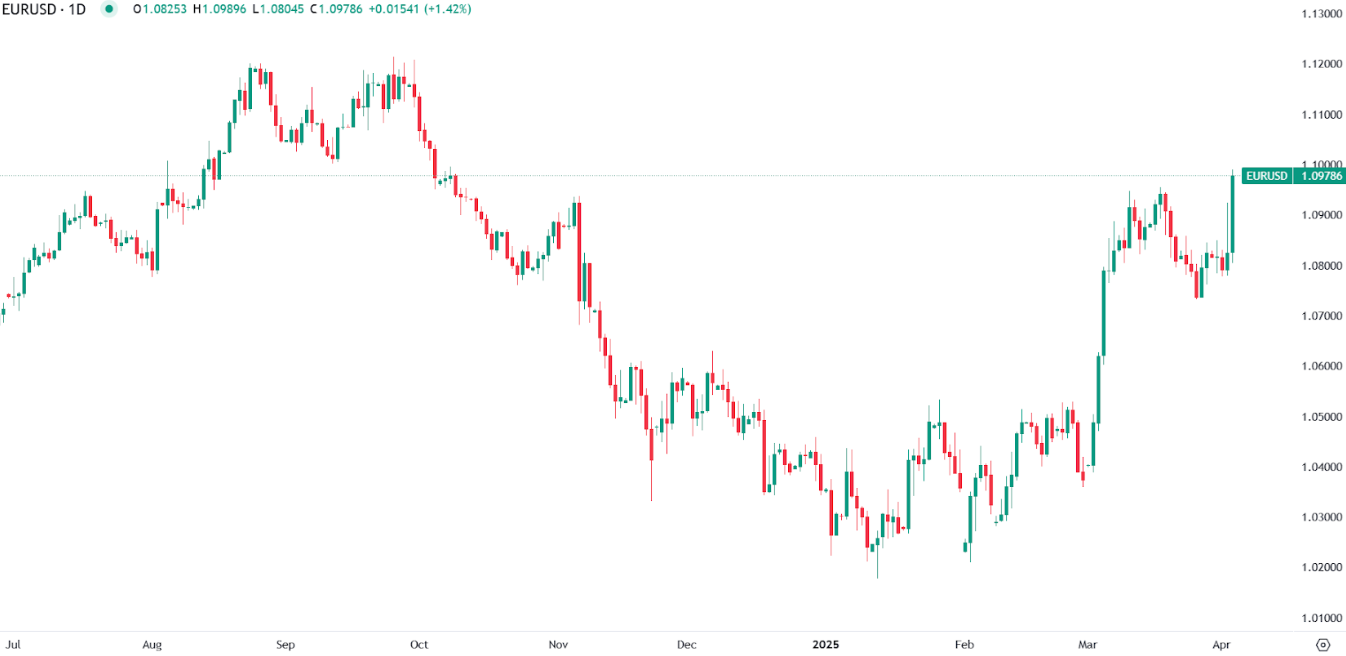The euro surged to a multi-month high against the US dollar in early Thursday trading, gaining approximately 1.3%. This strengthening of the single currency follows Donald Trump’s announcement of a sweeping package of tariffs on imports from a wide range of countries. The tariffs, described as reciprocal, include a 20% levy on EU goods, set to be implemented in two stages—an initial 10% on 5 April, followed by the full reciprocal rates on 9 April. The greenback’s weakening after this announcement suggests that investors see a more significant growth risk for the US than previously anticipated, potentially forcing the Federal Reserve to cut rates more aggressively than initially forecast. This is a significant shift, indicating that investors perceive the main downside of these tariffs for the US to be slower economic growth rather than higher inflation.
Meanwhile, across the Atlantic, the outlook is different. Traders anticipate increased fiscal stimulus in Europe, which is providing additional support to the single currency. Against this backdrop, FX markets are likely to experience heightened volatility as the full tariffs take effect on 9 April, with further significant negotiations—and possibly new developments—expected in the lead-up to their implementation.
Ricardo Evangelista – Senior Analyst, ActivTrades
 >
>
Source: ActivTrader
The information provided does not constitute investment research. The material has not been prepared in accordance with the legal requirements designed to promote the independence of investment research and as such is to be considered to be a marketing communication.
All information has been prepared by ActivTrades (“AT”). The information does not contain a record of AT’s prices, or an offer of or solicitation for a transaction in any financial instrument. No representation or warranty is given as to the accuracy or completeness of this information.
Any material provided does not have regard to the specific investment objective and financial situation of any person who may receive it. Past performance is not a reliable indicator of future performance. AT provides an execution-only service. Consequently, any person acting on the information provided does so at their own risk.